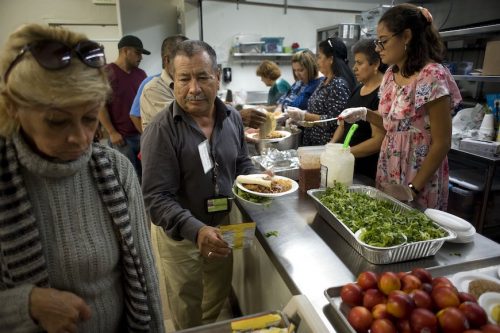“God created mankind in his image; in the image of God he created them” (Genesis 1:27).
“‘Amen, I say to you, what you did not do for one of these least ones, you did not do for me’” (Matthew 25:45).
“This is the commandment we have from him: whoever loves God must also love his brother” (1 John 4:21).
Dear brothers and sisters in Christ,

Beginning with the first book of the Bible and throughout the Gospels and New Testament epistles, God calls us to love the poor and care for our neighbor. These commands are at the heart of what we call “Catholic social teaching,” and it is a core part of our faith.
The September edition of The Central Minnesota Catholic features the last of seven monthly articles highlighting the seven principles of Catholic social teaching. I hope you read them all and had an opportunity to use the reflection questions and resources that accompanied each article.
These Catholic social teaching principles call us to:
- Respect life and protect the human dignity of all. Every person is loved by God, who created them in his own image. We must strive to love others as God loves them. This is the root from which the other principles spring.
- Foster family life and community participation. Strong marriages and families contribute to strong societies in which every member is able to work for the well-being of all.
- Protect human rights and meet our responsibilities. Human dignity is protected when we protect the right to life and access to other basic human needs, such as food, shelter and health care.
- Prioritize the needs of the poor and vulnerable. As Matthew 25:42-45 reminds us: Jesus wants us to give special attention to the poor. How we treat the poor is a reflection of our love for Christ himself.
- Respect the dignity of work and the rights of workers. Work is an important way to participate in the life of the community, build up society and achieve personal fulfillment.
- Foster solidarity with our neighbors. In an important sense, everyone is our neighbor — whether they live nearby or far away, even on the other side of the world. We are one human family that should work for peace and justice for all its members.
- Care for God’s creation. God created the universe and everything in it. We must take care of his creation through good stewardship of our natural environment.

These Catholic social teachings are rooted in Scripture and flow from the Eucharist, which draws us closer to Christ and others — our fellow worshipers, the people in our towns and cities, and our brothers and sisters around the world. As St. John Paul II once wrote: “If our eucharistic worship is authentic, it must make us grow in awareness of the dignity of each person.”
Catholic social teaching gives us a framework within which to address and respond to some of the most serious issues we face today as a society: racism, abortion, poverty, immigration, capital punishment, climate change and the coronavirus. As Catholics, our responsibility is to learn these social teachings and discern what they are calling us to do. We must root ourselves in the solid ground they provide, see our world through the eyes of faith, and resist temptations to view issues through partisan lenses or secular ideologies that frequently don’t align with what our faith teaches.
This isn’t easy by any means. It demands much from us. It pushes us from our comfort zones. It challenges us at times to re-evaluate long-held ideas. But this is the cost of missionary discipleship. Let us pray for one another, that we will be up to the challenge before us.
Sincerely yours in Christ,
+Donald J. Kettler
Bishop of Saint Cloud





















